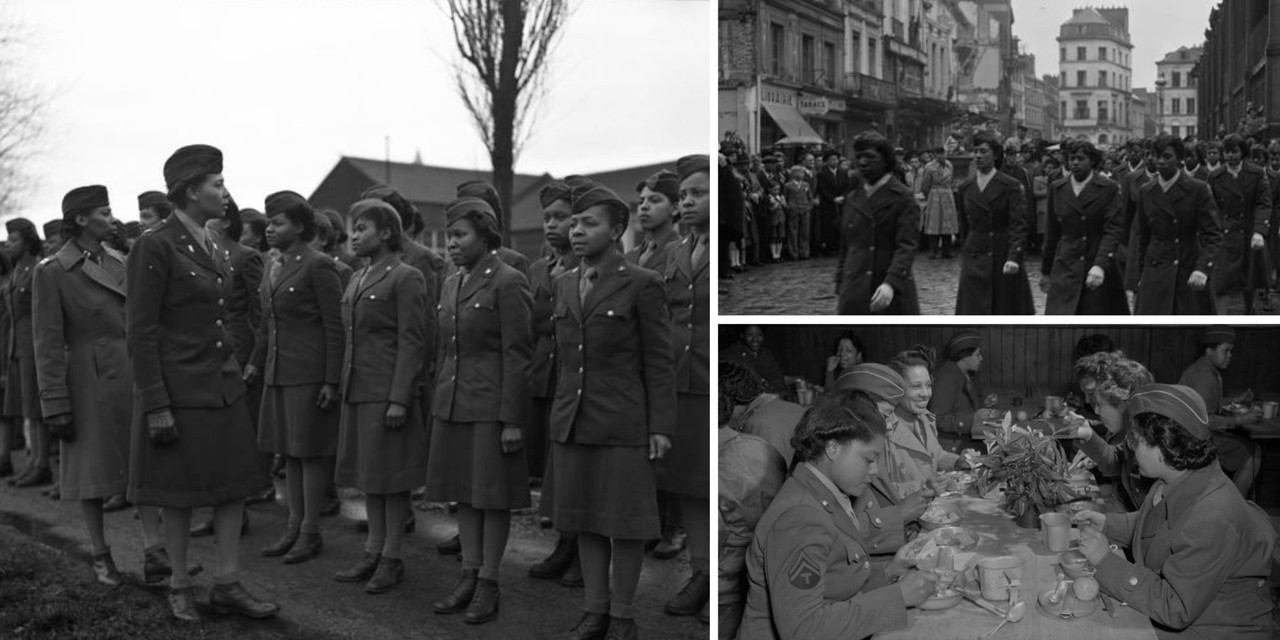The 6888th Central Postal Directory Battalion was the only black Women’s U.S. Army Corps (WAC) unit deployed overseas during World War II. Their story and achievements, which have been overlooked for decades, are now being brought to light by the recently released movie The Six Triple Eight on the streaming platform Netflix.
In 1945, a large amount of undistributed mail caused growing frustrations among the U.S. American soldiers serving in Europe, as they didn’t hear from their families back home in a long time. The long unresolved postal backlog began to have a major impact on the morale of the soldiers, for whom a letter from loved ones represented a glimmer of hope in desperate moments at the frontline of the war. Thanks to the advocacy of civil rights activist Mary McLeod Bethune and the support of First Lady Eleanor Roosevelt, the U.S. government assigned an all-black battalion of the Women’s U.S. Army Corps, led by Major Charity Adams Earley, to solve the problem. The 6888th Central Postal Directory Battalion was made up of 855 African American women.
Entrusted with an important task
Sent to England in February 1945, the unit was tasked with processing the backlog of seventeen million items within six months, becoming the only black all-female Army unit to serve overseas. The motto “when there’s no mail, there’s low morale”, which was mentioned in the movie, motivated its members to work three eight-hour shifts, seven days a week, in appalling conditions. The unheated, damp, rat-infested warehouse they worked in was just one of the things that made their situation difficult.
Fighting against intersectional discrimination
The movie’s director, Tyler Perry, intended to emphasize the complicated situation of black women who faced discrimination and racism on a daily basis within the U.S. Army. In one emotional scene in the movie the character of Major Adams Earley says: “I know we are fighting a war, but our war starts with being Negro. We are fighting on every front.”
Before being sent to Europe, many of these women experienced segregation during their training, such as separate living quarters, dining tables and a racially segregated training. Segregation, as well as sexist and racist treatment by male soldiers, continued during their deployment in England. Despite this, the unit proved those who underestimated their abilities wrong. They managed to sort nearly 18 million parcels, completing the task in half of the time expected.
The work of the 6888th Central Postal Directory Battalion continued in France after the work in England was done. Despite the uniqueness of this story, it was not the only way in which African American women were involved in the Allied effort during the Second World War. Another 500 women served in the U.S. Army as nurses, for example.
A rarely told war experience
Discovering the history of marginalized groups offers a new, more complex perspective into the past that includes everyone’s experiences, not just following the lines of often-told narratives. Tyler Perry’s movie reminds us of the importance of bringing these overlooked topics into popular culture, which have the potential to educate a wide audience and attract new groups of viewers.
Unlike other war movies, The Six Triple Eight doesn't show many war scenes. Instead, Tyler Perry offers the viewer the story of the protagonist Lena, inspired by the testimony of Lena Derriecott. Through this report, we experience the frustration and ambivalence of black American women who wanted to fight for their country but were treated as second-class citizens in the U.S. American army.
